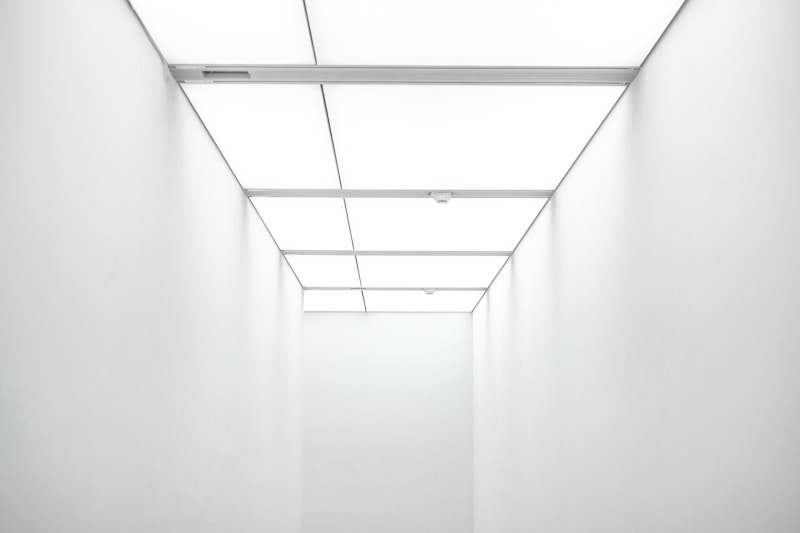Questions and Answers
Which of the following is NOT a consequence of delinquent acts?
Which behavior is classified as unruly rather than delinquent?
What is a possible consequence of both delinquent acts and unruly behaviors?
Which of the following is a factor typically considered during a formal hearing for a juvenile?
Signup and view all the answers
In the context of juvenile justice, what does informal adjustment refer to?
Signup and view all the answers
What can first-time offenders who admit guilt potentially have instead of going through a formal hearing?
Signup and view all the answers
What is the first step in the juvenile justice process?
Signup and view all the answers
What characterizes a formal hearing in the juvenile justice system?
Signup and view all the answers
What happens during the disposition phase of the juvenile justice process?
Signup and view all the answers
What is necessary for a petition to be filed in the juvenile justice system?
Signup and view all the answers
In which stage is a judge responsible for determining guilt or innocence in juvenile cases?
Signup and view all the answers
What should happen to a juvenile if they are found guilty during the adjudication stage?
Signup and view all the answers
For how long can a juvenile be placed under supervision following an informal adjustment if they are a first-time offender admitting guilt?
Signup and view all the answers
What right is specific to juveniles when taken into custody?
Signup and view all the answers
What is the primary role of the intake officer in the juvenile justice system?
Signup and view all the answers
Which of the following is NOT a right of juveniles in custody?
Signup and view all the answers
What can be a possible consequence for a juvenile found guilty of a minor offense?
Signup and view all the answers
In juvenile proceedings, what is the standard of proof required to find a juvenile guilty?
Signup and view all the answers
What is one right juveniles do NOT have when taken into custody?
Signup and view all the answers
Which of the following outcomes can occur after a juvenile is taken into custody?
Signup and view all the answers
Which of the following is a common informal adjustment for juveniles?
Signup and view all the answers
Which of the following is NOT an example of a delinquent act?
Signup and view all the answers
What consequence can result from committing a delinquent act?
Signup and view all the answers
Which behavior is classified under unruly behavior?
Signup and view all the answers
Which of these consequences can be shared between both delinquent acts and unruly behaviors?
Signup and view all the answers
What is an example of an unruly behavior related to education?
Signup and view all the answers
What happens to a juvenile taken into custody compared to an adult?
Signup and view all the answers
What is a key difference in how juveniles and adults can appeal a ruling?
Signup and view all the answers
How are juveniles' personal details treated differently from adults in the justice system?
Signup and view all the answers
In what way can findings of guilt differ between juveniles and adults?
Signup and view all the answers
What consequence does a juvenile face when found guilty of a crime compared to an adult?
Signup and view all the answers
What distinguishes a delinquent act from unruly behavior in Georgia's juvenile justice system?
Signup and view all the answers
Which statement accurately reflects a key goal of the juvenile justice system in Georgia?
Signup and view all the answers
At what age is an individual considered a juvenile in Georgia?
Signup and view all the answers
What significant change occurred in Georgia's juvenile justice system in 1911?
Signup and view all the answers
Under which circumstances can juveniles be tried as adults in Georgia?
Signup and view all the answers
What was a common treatment of juvenile offenders in Georgia before 1911?
Signup and view all the answers
What is one right that juveniles possess when taken into custody?
Signup and view all the answers
What determines whether a juvenile is released or detained after being taken into custody?
Signup and view all the answers
Which of the following is NOT classified as a 'Deadly Sin' for which juveniles can be tried as adults?
Signup and view all the answers
What type of behavior does the juvenile justice system categorize as 'unruly'?
Signup and view all the answers
Which of the following is NOT a right afforded to juveniles during custody?
Signup and view all the answers
Which of the following outcomes is possible for a juvenile after being taken into custody for a minor offense?
Signup and view all the answers
Which legal protection do juveniles have that aligns with adult rights in the juvenile justice system?
Signup and view all the answers
What type of behavior is generally not considered a crime for adults but may lead to consequences for juveniles?
Signup and view all the answers
What must be proven in juvenile cases to establish guilt?
Signup and view all the answers
Which of the following is an important right juveniles have that aids their legal defense?
Signup and view all the answers
What occurs during the adjudication phase of the juvenile justice process?
Signup and view all the answers
In the juvenile justice system, what is the consequence of a formal petition being filed?
Signup and view all the answers
What happens if a juvenile is found delinquent after the adjudication hearing?
Signup and view all the answers
Which of the following best describes the role of the intake officer in the juvenile justice system?
Signup and view all the answers
What is required for a juvenile to have their case settled through an informal adjustment?
Signup and view all the answers
During which phase of the juvenile justice process is a judge responsible for announcing the consequences for the offense?
Signup and view all the answers
What is the first step a child may go through after being referred to the juvenile justice system?
Signup and view all the answers
What characterizes a formal hearing in the juvenile justice system?
Signup and view all the answers
Study Notes
Delinquent Acts
- Delinquent acts are serious offenses committed by minors, including theft, assault, drug possession and selling, fraud, and trespassing.
- Consequences for delinquent acts can be probation, incarceration for up to 30 days, or commitment to the Department of Juvenile Justice.
Unruly Behavior
- Unruly behavior involves actions not typically classified as crimes, such as possession of alcohol or cigarettes, running away, breaking curfew, disobeying adults, truancy, and driving without a license.
- Potential consequences include placement in a Youth Development Center (YDC) for up to 30 days, release to a parent or guardian, probation, or commitment to the Department of Juvenile Justice.
Delinquent vs. Unruly
- Delinquent acts are criminal offenses; examples include murder and theft.
- Unruly behavior is generally not criminal for adults, with possible consequences being less severe, such as release to a parent.
- Incarceration is more likely for delinquent acts than for unruly behaviors.
Rights of Juveniles
- Juveniles have rights similar to adults but with additional protections due to their age.
- Rights include contacting parents immediately, having a guardian present during questioning, privacy regarding their identity, and the right to make two phone calls.
- They cannot self-incriminate and cannot be placed with adult offenders.
Additional Legal Rights
- Juveniles are entitled to notice of charges, legal counsel, the right to confront witnesses, transcripts of proceedings, an appellate review, proof beyond a reasonable doubt, and protection against double jeopardy.
Juvenile Justice System
- The juvenile justice system is distinct from the adult system; individuals are taken into custody rather than arrested.
- An intake officer assesses evidence to determine if charges should be pursued.
- First-time offenders who admit guilt may resolve their cases through informal adjustments; more severe or repeat offenses lead to formal hearings.
- Formal hearings do not involve juries; a judge decides on guilt and an appropriate disposition.
Summary of Juvenile Justice Process
- Intake: Referral or custody by police leads to evaluation by an intake officer.
- Informal Adjustment/Detention: Decisions made regarding court action or supervision.
- Petition: Formal charges filed based on probable cause.
- Adjudication: Judge evaluates evidence without a jury, determining if the juvenile is unruly or delinquent.
- Disposition: Consequences for delinquent findings are announced and commenced.
Additional Context
- For first-time offenders and informal adjustments, the juvenile may be under court supervision for 90 days before a formal hearing can occur.
- The judge's role in the adjudicatory hearing is pivotal, focusing on assessments of witnesses and evidence to determine guilt or innocence, followed by appropriate sentencing if deemed delinquent.
Juvenile Offenders in Georgia
- Under 17 years old qualifies as a juvenile in Georgia.
- Juveniles treated separately from adults in the justice system to focus on rehabilitation.
Differences Between Delinquent and Unruly Behavior
-
Delinquent Acts: Considered criminal; includes theft, assault, and drug offenses.
- Consequences may involve probation, incarceration up to 30 days, or commitment to Juvenile Justice Department.
-
Unruly Behavior: Not criminal by adult standards; includes skipping school, breaking curfew, and running away.
- Consequences can include placement in a Youth Development Center for up to 30 days, probation, or release to parents/guardians.
Rights of Juveniles
- Upon custody, juveniles possess specific rights including:
- Immediate contact with parents.
- Right to have a parent present during questioning.
- Protection from having their name or photograph made public.
- Two phone calls, one to a parent and another to an attorney.
- The right to not self-incriminate.
Juvenile Justice System Process
- Intake: Initial assessment to determine if there's sufficient evidence for charges.
- Informal Adjustment: First-time offenders may have cases resolved without formal hearings if they admit guilt.
- Formal Petition: Official charges filed for delinquency or unruliness.
- Adjudication: Equivalent of a trial; no jury, but evidence is presented to a judge.
- Disposition: Sentencing follows if found delinquent; emphasizes rehabilitation.
"7 Deadly Sins" Law
- Certain violent offenses allow juveniles to be tried as adults under this law, which includes:
- Murder, voluntary manslaughter, rape, aggravated sodomy.
- Armed robbery, aggravated sexual battery, and other serious crimes against public safety officers.
Key Historical Context
- First juvenile court established in Fulton County, Georgia, in 1911 for youth under 17.
- Modern juvenile justice system aims to balance best interests of the child and society, with policies updated as of the 2014 juvenile code.
Summary of Key Steps in Juvenile Justice
- Custody: Child is taken into custody, and an intake officer assesses the situation.
- Decision to Detain or Release: Intake officer decides whether the juvenile should be released or detained.
- Judicial Review: If detained, a formal hearing occurs without a jury to determine delinquency.
- Consequences: If found delinquent, consequences are determined with a focus on rehabilitation rather than punishment.
Studying That Suits You
Use AI to generate personalized quizzes and flashcards to suit your learning preferences.
Description
This quiz explores various delinquent acts such as theft, assault, and drug possession, along with the consequences faced by those involved in such activities. Discover the differences between delinquent acts and unruly behavior, and understand the repercussions that can arise from these actions.




